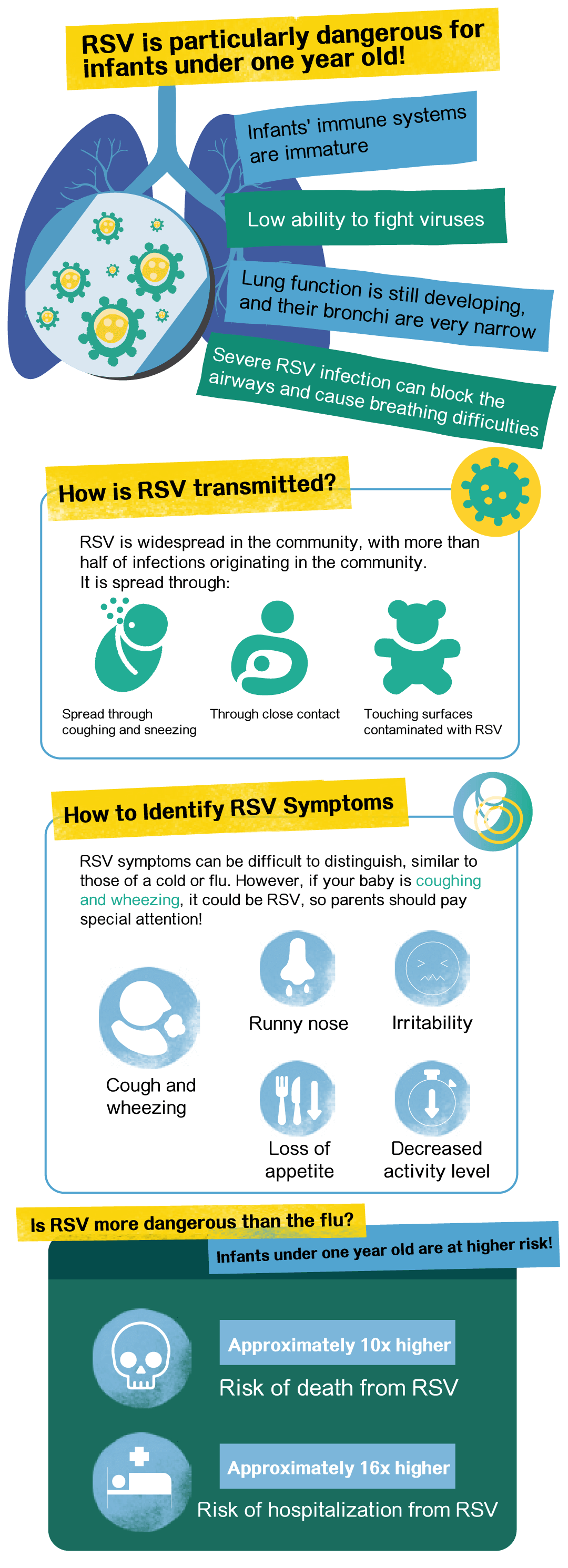
10.08.2025
RSV Preventive Antibody Injection
What is Respiratory Syncytial Virus (RSV)?
Respiratory Syncytial Virus (RSV) is a common virus that causes respiratory tract infections in infants and young children. It is highly contagious, with initial symptoms resembling those of a cold. However, it can worsen rapidly, leading to more serious respiratory illnesses or requiring hospitalization. In Hong Kong, RSV infections can occur throughout the year. RSV has a significant impact on infants, with those under 6 months old being at the highest risk of severe illness. Two out of three infants under the age of one have been infected with RSV, and 90% of children under the age of two have experienced an infection. RSV can also lead to long-term complications, such as chronic wheezing and an increased risk of developing asthma.

Guess you like









